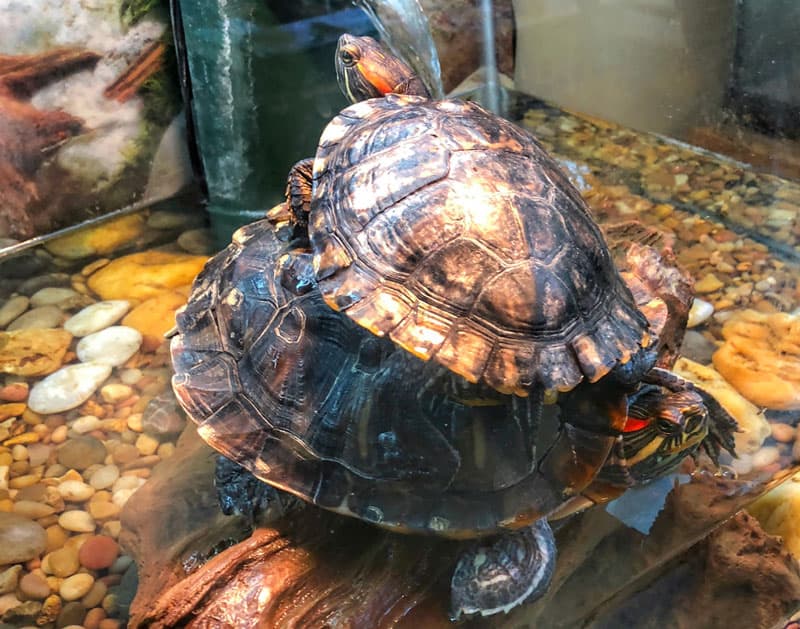How Much Do Turtles Cost? A Comprehensive Guide
When considering getting a pet turtle, one of the first questions you might ask is, “How much do turtles cost?” It’s a common inquiry that potential pet turtle owners weigh the financial commitment. In this article, we’ll cover the factors that influence turtle prices, including habitat setup, food, healthcare, and more. By the end, you’ll have a clear understanding of what to expect and even a few tips on how to save along the way. So, if you’re ready to dive into the details, keep reading!

Factors that Determine Turtle Costs
Several factors can affect the overall cost of owning a turtle. The type of turtle you choose, its age, and where you purchase it are some of the main considerations. Additionally, you’ll need to factor in the costs associated with setting up an appropriate habitat, providing food, and ongoing healthcare.
Initial Purchase Costs
The initial purchase costs for a turtle are more than just the price of the turtle itself. You need to create a suitable living environment that mimics their natural habitat as closely as possible.

Cost of the Turtle: The price can range from $10 for common species to several hundreds or even thousands of dollars for rarer species.
Enclosure: A proper tank can run between $100 to $300, depending on the size and quality.
Heating and Lighting: Essential for your turtle’s well-being, these supplies can add another $50 to $100 to your initial costs.
Filtration System: Clean water is crucial, so expect to spend $50 to $150 for a reliable filter.
Substrate and Decor: Items like sand, rocks, and plants can run you an additional $30 to $100.
Feeding Supplies: You may also need feeding stations and specialized turtle food initially costing around $20 to $50.
Initial Health Check-up: Budget for a vet visit soon after getting your turtle, which can cost around $50 to $75.
Ongoing Care and Maintenance Costs
Taking care of a turtle isn’t a one-time expense. There are ongoing costs that you need to account for to ensure your pet lives a long and healthy life.
Food and Supplements: Regular diet costs can range between $20 to $40 per month. This includes turtle pellets, fresh vegetables, and occasional protein sources.
Water and Substrate Maintenance: Monthly replacement of substrate and water conditioners can add up to $10 to $20.
Electricity: The cost of running heating lamps and filters can be another hidden expense, adding about $10 to $20 each month to your utility bill.
Regular Health Check-ups: A vet visit each year can cost around $50 to $100.
Replacement Parts: Filters and bulbs will periodically need replacing, resulting in an annual cost of about $100.
Toys and Enrichment: Be prepared to spend around $10 to $30 annually on toys and new decor to keep the habitat interesting for your turtle.
Unexpected Expenses: Always keep an emergency fund for any sudden health issues or equipment failures.
Health Care and Emergency Costs
Healthcare is a critical aspect of owning a turtle. Regular vet check-ups and emergency visits can be costly but are necessary for your pet’s well-being.
How to Save Money on Turtle Care?
Even though owning a turtle can be costly, there are ways to manage expenses without sacrificing the quality of care.
Conclusion
Owning a turtle is a rewarding experience, but it comes with financial responsibilities. By understanding the initial and ongoing costs, from purchase to healthcare, you can ensure your turtle receives the best care. Proper planning and smart shopping can also help keep these costs manageable. Remember, a well-cared-for turtle can provide many years of companionship and joy.
FAQs
Is a turtle a cheap pet?
Turtles are not typically considered cheap pets due to their long lifespan and specific care requirements. While the initial cost may seem low, the ongoing expenses for food, habitat maintenance, and healthcare can add up over time.
How long do turtles live?
Turtles can live for several decades, with many species having lifespans ranging from 20 to 50 years or even longer. Proper care and a suitable living environment are crucial for ensuring they live to their full potential.
Do turtles sleep all day?
Turtles do sleep, but not all day. They have periods of activity and rest. The amount of sleep can vary depending on the species and environment, but typically, they are active during the day and rest at night.
